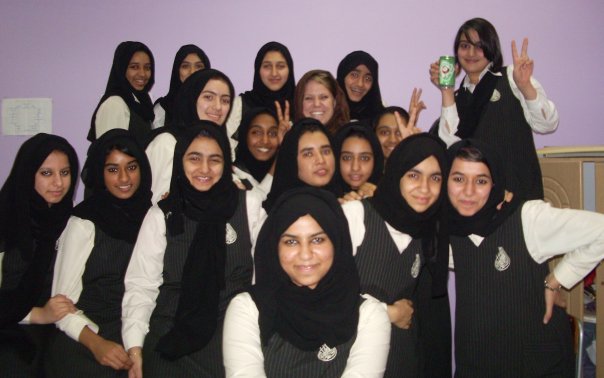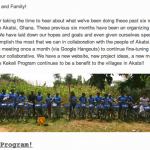I have always loved learning about and immersing myself in different cultures, which has led me to join forces with locals on several different community development projects all around the world. My first trip was to Haiti while I was attending Point Loma Nazarene University with fellow RHC collaborators. My team worked with the local community to help build a concrete road so that supplies could reach a school during the rainy season. I knew I wanted to continue learning about different communities, so when I graduated from PLNU I went to China where I taught English for a year. There I led weekly Cultural Sessions where my students and I discussed a variety of different topics that grew my desire to help bridge the gap between cultures. I knew that I wanted to continue living and working overseas, so I headed to the Middle East where I believe the largest misunderstandings exist between our cultures. I lived there for two years leading a Cross-Cultural Club for Emirati high school girls where we discussed different issues from around the world. As women’s empowerment was an essential focus, oftentimes we centered around ways that women in communities could come together to help alleviate the problems.
It was during these projects that I saw the importance of building long-term relationships and focusing on the assets of a community instead of their needs. I decided to return to the US to gain more knowledge about the theories of community development and got my Masters degree in Anthropology specializing in International Development at Colorado State University. I did research on the different strategies communities take to empower themselves, focusing on women’s empowerment, food sovereignty, economic development, and grassroots movements. One of my biggest research projects was living on the Pine Ridge Indian Reservation in South Dakota where I worked for a Community Development Financial Institution developing a program to empower the youth. I created a curriculum to teach financial literacy and individual skills to Native youth, which, when coupled with the child’s matched savings account, will empower the youth to stay in school longer with more options once they graduate. It was a great experience working with the community once again, and allowed me to be part of the program development from creation, to evaluation, to analysis.
After graduating, I started a job at the International Rescue Committee in San Diego as the Work Readiness Trainer. I work with low-income youth in the City Heights region where the majority of students are recent refugees from such countries as Somalia, Burma, and Iraq. They are significantly behind academically, have basic skill deficiencies, are ill-prepared to enter the world of work, and lack access to culturally and linguistically appropriate support to overcome these challenges. I hold workshops and trainings to help better equip the youth for their futures, such as building soft skills, exploring career and education opportunities, interview workshops and resume writing, and working on customer service in an American cultural setting.
This past summer I started expressing my interest in program evaluation for the RHC, and I am thrilled to now be joining them and continue my passion for learning about different cultures in Akatsi, Ghana. I am excited to work with the community to find culturally appropriate strategies to fight social injustice, focusing on health and community development. My focus will be on community-based participatory evaluation to empower the women not just as an outcome but also as a process. Evaluation is essential to see if our program is helping the women of Akatsi reach their goals and continue developing the RHC. I am deeply proud of what the women in Akatsi have already accomplished and proud to work alongside them and the other dedicated members of the RHC.




